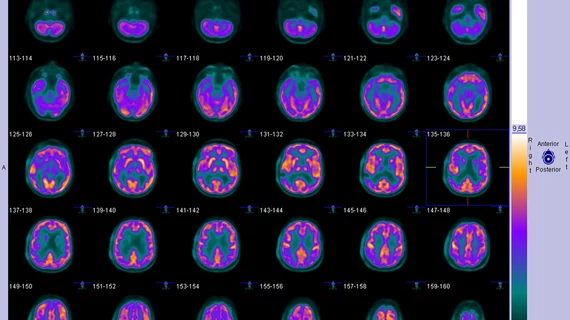Imaging agent that targets deadly brain tumors given FDA's Fast Track designation
A new imaging agent targeted at aggressive brain tumors was placed on the Fast Track to approval by the U.S. Food and Drug Administration (FDA).
Telix’s TLX101-CDx, also known by its brand name Pixclara, helps to manage gliomas in both children and adults by targeting specific membrane transport proteins—LAT1 and LAT2—in order to monitor tumor progression.
Glioblastoma—a high-grade glioma— is the most aggressive form of primary brain cancer. It is a complex form of cancer for which there currently is no cure, and survival rates after diagnosis are dismal, as recurrence is common after treatment.
With the imaging agent now being granted Fast Track designation for the characterization of progressive gliomas using PET imaging, its review will be expedited and more closely monitored by the FDA. Fast Track designations are typically granted to drugs that target an unmet medical need.
The University of California, San Francisco (UCSF)—an academic leader of clinical research into the use of FET PET—is collaborating with and supporting Telix in their research, development and (pending approval) eventual commercialization of the imaging agent.
In a news release detailing the designation, Professor of Radiology at UCSF, Thomas A. Hope, MD, spoke highly of the partnership and of the imaging agent’s potential to address the “critical, unmet need to improve the diagnosis and management of glioma.”
“We are excited to leverage the clinical experience at UCSF to help make this investigational agent more widely available,” Hope stated. “18F-FET has the potential to help determine if a glioma is truly progressing or undergoing a treatment-induced change, known as pseudo-progression, where MRI—the standard of care—can often be inconclusive.”
Telix is partnering with PharmaLogic Holdings Corp (PharmaLogic) to manufacture finished doses of the imaging agent once it is approved.
Learn more here.

